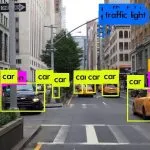One of the first things that come to mind when talking about Facial Recognition is definitely the Face ID feature. If you don’t know already, Face ID is an Apple Inc. facial recognition system designed for the iPhone and iPad Pro. The system supports biometric authentication for unlocking devices, making payments, and gaining access to sensitive information. Face recognition has shown to be the least intrusive and fastest biometric verification method throughout time. However, the technology has more than this to offer. A wide range of facial recognition technologies has been observed to be beneficial to individuals and society as a whole. Increased expenditures in facial recognition technology have been made in recent years. This technology is gaining more and more attention, thanks to the incorporation of artificial intelligence into facial recognition systems. This technology delivers extreme accuracy when paired with artificial intelligence. Let’s find out more about Facial Recognition with AI.
What is Facial Recognition technology ?
Facial Recognition is a type of biometric software that maps and stores an individual’s facial traits as a face print. This system makes use of an image or video to identify a person. Users may comprehend where faces appear in an image or video, as well as what features those faces have, using facial analysis capabilities. This is one of the most advanced types of biometric authentication, capable of identifying and authenticating a person based on face traits in a database image or video. This technology entails training known photos, classifying them into known categories, and storing them in a database. When the system receives a test image, it is categorized and compared to the database. Facial-recognition algorithms are taught to produce ‘faceprints’ of people by mapping the geometry of particular facial features using a large number of photos. Faceprints can then be used to classify a face into categories like gender, age, and race, as well as compare it to other faceprints in databases.

How does Facial Recognition work with Artificial Intelligence ?
Face recognition employs AI and machine learning methods to recognize human faces in the backdrop. Human eyes are usually the first thing the algorithm looks for, followed by eyebrows, nose, mouth, nostrils, and iris. A person’s face is made up of data points such as the distance between their eyes, the height of their cheekbones, the distance between their eyes and their lips, and so on. AI facial recognition looks for patterns in those data points and attempts to account for them. Additional validations utilizing big datasets comprising both positive and negative images demonstrate that it is a human face once all of the facial features have been collected.
Feature-based, appearance-based, knowledge-based, and template matching are some of the most common facial recognition algorithms. To detect a face, feature-based approaches focus on traits such as the eyes or nose. The results of this method may vary depending on the amount of noise and light present. Appearance-based algorithms match the properties of face photos using statistical analysis and machine learning. Template-matching approaches compare photos with previously recorded face patterns or characteristics and correlate the findings to recognize a face, whereas face detection methods compare images with previously saved face patterns or features and correlate the results.


Applications and Advantages of Facial Recognition
AI-based software can scan databases of faces in real-time and compare them to one or more faces observed in a situation. In a matter of seconds, you can get highly accurate results – systems routinely provide 99.5 percent accuracy rates on public standard data sets. Due to model training across millions of faces, there is less racial or gender prejudice, and it may be used across many cameras. Other benefits of AI face recognition software are anti-spoofing measures and real-time identification.
When comparing the costs of different biometrics, we can also observe that facial recognition is inexpensive, user acceptance is simple, and information acquisition is simple. Face recognition also provides several advantages over standard card recognition, fingerprint recognition, and iris recognition, including non-contact, high concurrency, and user-friendliness. It has a lot of application possibilities in governance, public facilities, security, e-commerce, shopping, education, healthcare, and other areas as well. Airports have begun employing smart gates, which utilize a combination of facial identification checks to expedite the process. Deep learning algorithms are assisting in the reduction of the need for traditional passwords on mobile devices, the identification of fraud, and the improvement of anti-spoofing skills.


The Problem with Facial Recognition
Even well-trained AI facial recognition systems are susceptible to deception because they lack real-world context. When a colleague is wearing a cap, glasses, and a face mask, you may still identify them. However, an AI system might not. It is dependent on the neural network’s level of training. Even if AI facial recognition systems are more accurate on the surface, they are also more likely to make mistakes in less-than-ideal settings. Another tricky issue is data collection without consent. The vast majority of facial photos are gathered without consent. Facial recognition enterprises sometimes trawl the open web to obtain images of people without their consent in order to construct their training datasets. This is highly contentious, and its ethicality is called into question.
Read more about Ethics and Algorithmic Bias in AI.
Conclusion
This technology has been present for decades, but in recent years, it has grown more visible and accessible as it now supports creative solutions such as personal photo apps and mobile device secondary authentication. Artificial intelligence provides a plethora of options and limitless potential for working for the global good. However, when working with data, it is critical to consider people’s ethics and privacy.
Algoscale is a Data Science & Analytics consulting firm that provides world-class AI solutions and product engineering services to start-ups and Fortune 100 companies, with a focus on ISVs, media publishers, and retail service providers. Modernization and a data-first mindset fuel our efforts to build cutting-edge goods and solutions.












